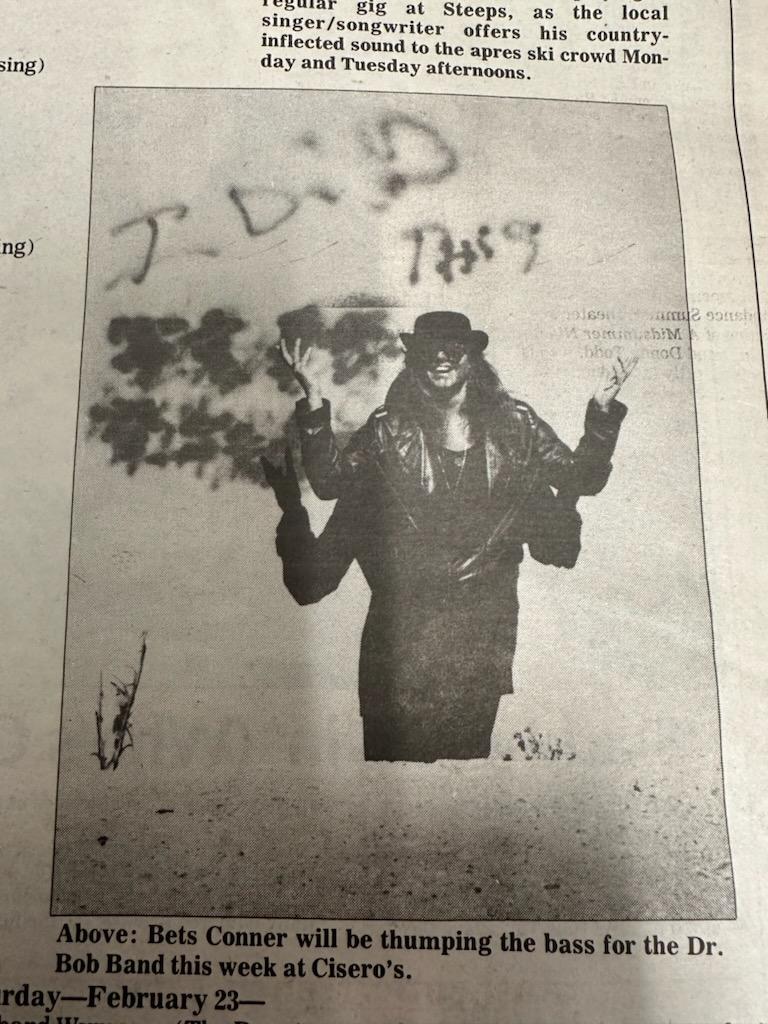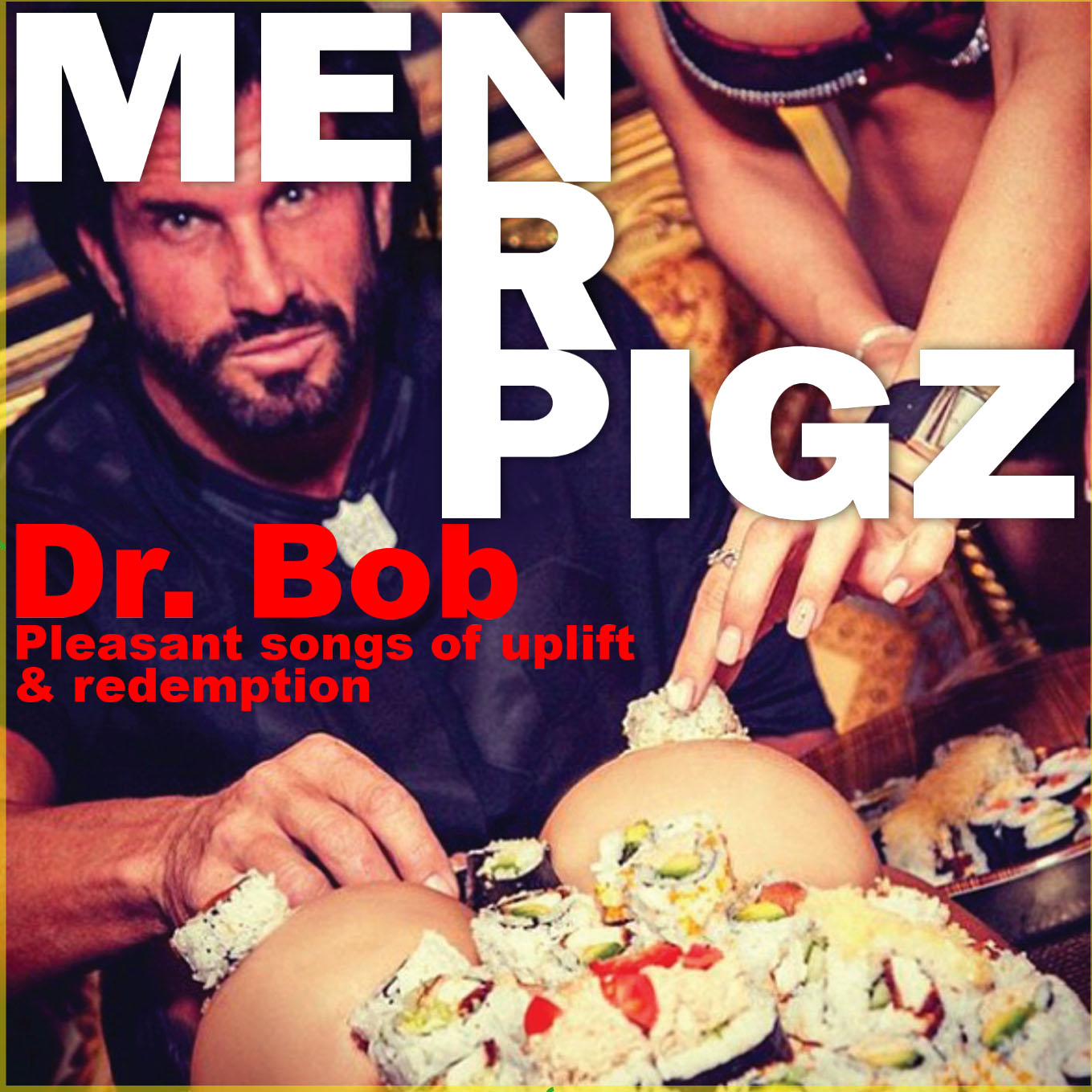DIY ROCKSTAR!!!
by
Jeffrey Howrey
“Always tell the truth, that way you don’t
have to remember what you said.”
Mark Twain
Chapter 1
How Smart Are You?
Let’s get one thing straight. The less you know about me the better. But I will admit this much, this whole thing went down because of premature ejaculation. That’s a subject I wrote a song about:
Pretty Girl
(drbobjdh.com/Free Music/Compilation)
I’ve seen some mighty, mighty men in this
world
They all fall apart around a pretty girl
They’re big-time talkers in the locker room
They all fall apart around a pretty girl
Like Samson and Delilah when she clipped
his curls
Cleopatra and Bathsheba, you remember
her
They’re singing “Louie Louie” when they
get her in their hands
She’s such a suffragette, it’s always “wham,
bam, thank you, ma’am”
When Adam started dating, pretty Eve was
sitting, waiting
That snake said, “Hesitating is just messing
with your fate, man”
Helen was a homegirl, Troy fought a war
for her
Ulysses dug the sirens so he strapped
himself on board
They all fall apart around a pretty girl
But more about that later. Let’s start with the basics. My name is Jeffrey Howrey but most people call me Bob. Dr. Bob, actually. People ask me all the time if I’m a real doctor. I tell them I’m not even a real Bob. The source of all the confusion is the rock band I’ve been the leader of for several decades called Dr. Bob (drbobjdh.com). I take pride in the nickname I have acquired because I feel that it is indicative of the success and impact the band has had. And after all, isn’t that the point of starting a rock band in the first place? To succeed and become a genuine DIY ROCKSTAR!!!
But I digress. For now, let’s circle back to the beginning. I was born May 22, 1955 just as rock’n’roll itself was being birthed with the big bang explosion marked by the release of Chuck Berry’s “Maybelline” and the first records by Elvis Presley on the Sun label. I am a true child of rock’n’roll. A late bloomer Boomer.
My earliest childhood memory revolves around events which took place late one cold February night in 1959 when I was almost four-years-old. I was living with my father and mother, Don and Carol, in a small cottage on the outskirts of Springfield in central Illinois. My only sibling, my sister Lee Ann, had not yet been born.
It was a rural area. Mostly farmlands. Our house was perched on a hill overlooking a fishing pond below that was bordered by tall, old growth trees and dense foliage.
Sometime in the early morning hours of the night in question, my parents were suddenly awakened. There was a blinding white light coming through the windows and illuminating the interior of the home. They went to the window.
Outside, only a few yards away, was a huge spaceship with flashing lights hovering above the pond. The surface of the water was undisturbed. It was a gigantic mothership similar to the one in “Close Encounters,” defying gravity in mid-air. Silent and motionless. There was no noise on that windless night, just an eerie, unsettling stillness in the freezing Midwestern pre-dawn hours. The U.F.O. had settled down just a few feet above the ripple-less surface, protected on all sides by forest. At this juncture it was assumedly unseen by others as there were no neighboring homes in any direction for a quarter-mile or so.
The next thing they remembered was the craft zooming off into the stratosphere in the wink of an eye at an otherworldly speed. Just like that, still with no noise, they watched it propel off into space at a velocity beyond hypersonic that made it evident the machine eclipsed any known human technology. It was gone in a flash, almost instantaneously.
That’s all my parents remembered. But there was one problem. There were about two hours missing from their time-line that they had no recollection of. It was beyond traumatic, it was terrifying.
I apparently slept through the entire incident. But I vividly recall the morning after. I awoke to discover my mother in the kitchen, hysterical, frantically crying. Sobbing uncontrollably. Extremely upset. Very disturbed. Beyond agitated. Inconsolable.
My earliest childhood memory was watching my mother have a nervous breakdown.
She was on the phone, calling the Air Force, the National Guard, the local television and radio stations. She wanted to know if anything unusual had been reported in the skies above Springfield the previous night; desperate to find out if any out of the ordinary aircraft had been sighted. She was asking for answers to questions that would haunt her for the rest of her life.
Nothing had been seen. My mother would never be the same.
For the next few years my mother would talk openly about the incident and was eventually labeled as something of a crackpot as a result. My father, on the other hand, steadfastly maintained for many years that the event never occurred. When the subject would invariably come up at family holiday gatherings, he would persistently chide my mother by saying, “No, Carol, that didn’t happen.” As a result, of course, her story was met with some skepticism. Although I never heard him explain his stance, family speculation was that he was trying to maintain his credibility in the corporate world where U.F.O. stories were of no help to aspiring young insurance executives. He was, the theory went, prioritizing a desire to maintain his professional image and not be the nut job at the water cooler talking about flying saucers.
Don Howrey was a consummate alpha male. He ran his life with military precision. In the Army he had been stationed in Germany in the same unit with Elvis, whom he more than slightly resembled. He had endured a hard-scrabble Depression era childhood as part of a large poverty-stricken family. He grew up in Kemp, Illinois, a tiny farm country hamlet in the middle of nowhere so typical of the tens of thousands of similar enclaves that dot the Midwestern prairie. It wasn’t even a crossroads. The only road in and out of town ran parallel to the railroad tracks that serviced a large grain elevator. Besides that large edifice, Kemp was comprised of a country store, a small schoolhouse, a Church of Christ and a few dozen ramshackle shacks.
Like most rural areas in the Midwestern heartland, Kemp was not the most stimulating environment in which to grow up. It was what you made of it. Boredom was a constant companion. Televisions didn’t exist and even if they did the Howreys, who struggled to put food on the table, could never have afforded one. Kemp was the sort of place where the kids had to invent their own fun. In the summer it was firecrackers, sandlot baseball, bb guns and water balloons to help get relief from the sweltering heat and humidity. They would amuse themselves by putting pennies on the railroad tracks and then retrieve the smashed remnants once the locomotive wheels had done their damage. Kemp was nowheresville. Bicycles provided limited escape, allowing them to pedal to nearby villages to visit friends and relatives. Few teenagers had cars. Restless, energetic and ambitious types like my father couldn’t wait to break the chains and escape the hum-drum dead-end of small town life. He and his siblings were hungry for a world they could only imagine somewhere beyond the dreary, endless, flat-as-a-pancake prairie horizon stretching out in all directions. Somewhere beyond the cornfields and soybeans. Getting out was the only thing that mattered. The modest Howrey home in Kemp was right on the main drag, across the street from the grain elevator. Sardines in a can would have been more comfortable. Nine people were crammed into a tiny three bedroom house with floors that weren’t quite level and one antiquated bathroom with plumbing held together by a hope and a prayer. But it was an abode full of love. What the house lacked in structural integrity was more than compensated for by the love that filled the home inside. The bonds between the occupants were tighter than the confines. It was all presided over by a classic matriarch, his mother, Tyhrrene. A jovial, large, robust woman, Tyhrrene singlehandedly raised her seven kids while her husband, Clyde, was frequently absent, working in Detroit auto shops to make money to send home. Tyhrrene would hold court in her small dining room leading boisterous gatherings of the family in endless penny ante gambling sessions playing card games such as Blitz and 21 while a working cuckoo clock on the wall chimed out the passing hours. Tyhrrene was a pistol. Her favorite song was “Midnight Special.” After her husband died, she dated well into her late sixties. She was a proud woman who cared about her appearance. Although she lived her entire life in poverty she somehow managed to scrape together enough money for regular trips to the hairdresser; she was not an unknown presence at the beauty shop. She almost always wore dresses and often carried a purse. She peered out at the world with impish delight from behind her eyeglasses. She showered her family with love and affection, obsessing over her children and grandchildren. She can be seen in the Dr. Bob “Got that Goin’ for Me” video wearing the red boa she favored during her final years at an assisted living facility before she died at the ripe old age of 103 (YouTube/Dr. Bob Band). Such were the circumstances under which my father maturated. A star athlete in high school, he was a tough-as-nails hardass. Growing up dirt poor will do that to you. He was an overacheiver and excelled at any sport he tried. He was offered a minor league baseball contract by the St’ Louis Cardinals organization at the very bottom rung of their farm system. He declined. He was a man of common sense. He knew he would never make it to the big leagues. Don Howrey was not the type to go chasing after wild-eyed dreams. By the time he was a young adult he was not the sort of person to be making up stories about spaceships. A very hard worker, he was intent upon providing a good life for his family. In the parlance of modern times, he was a stand-up guy. Don Howrey had no time for any U.F.O. nonsense.
They say opposites attract. His pairing with my mother was a perfect example. She was a delicate, artistic, highly intelligent, compassionate and sensitive princess. She was the spoiled only child of my two maternal grandparents, George and Ruth Archer. Through perseverance, a strict adherence to frugality and an old school work ethic bolstered by an unshakable belief in the American Dream complemented by deeply held religious convictions centered on the Methodist Church, the Archers had risen to upper middle class status in their native Springfield, thereby providing Carol with comfortable formative years. With her delicate features, trim physique and polished social skills, she had several suitors as a young debutante. One in particular stood out. While attending Lindenwood College near St. Louis she caught the eye of a well-heeled Arab sheik from an oil-rich Saudi family. He drove a brand new shiny Cadillac. He asked for her hand in marriage. She demurred. She soon transferred to Eastern Illinois University in Charleston where she met her future husband before they both dropped out of school.
The night of the U.F.O. was the beginning of a long fork in the road for my parents. To make a long story short, because of many factors, not the least of which being the U.F.O. event, my mother within a few years incrementally slipped into various forms of degenerative mental illness – bipolar, schizophrenia, clinical depression, etc. – which had her in and out of institutions for the rest of her life. To put it simply, my mom went crazy. A good portion of my memories of her during my teenage years revolve around visits with her in various psychiatric units. It was sort of like living a cruel version of “One Flew Over the Cuckoo’s Nest” with no Jack Nicholson there to provide comic levity. Perpetually depressing and heartbreaking. It seemed to me that my mother was somehow being punished by our society just for telling the truth about the U.F.O.
How do I know the story was true? Simple. My father told me so.
He eventually retired from the corporate world and with his second wife, Debra, moved to her hometown of Poplar Bluff, Missouri. Once unbridled from the pressures of maintaining his office image, and perhaps wanting to alleviate some of the guilt he undoubtedly felt for lying for so many years, my father would speak openly about the event, confirming every detail just as my mother had always told the story. Additionally, in one of the final one-on-one conversations I had with him before we became estranged many years ago, he verified the accuracy of her account in minute detail. Don Howrey was never the type of guy looking for attention. I know it must have pained him deeply to finally tell the truth. But at least he did.
Regardless of the veracity of the tale, it might as well have been true because whatever happened that night completely destroyed my family. I wrote a song about the whole thing with special emphasis on those corrosive effects:
U.F.O.
(drbobjdh.com/Free Music/Compilation)
It was a cold night, in the winter of ’59
About the time Buddy Holly died
It was a very cold night
There was a bright light
Outside the window that night
Gave Mom and Dad a terrible fright
There was a very bright light
For some time
Yeah, for quite some time
There was a very bright light
Outside the window that night
On that very cold night
My Mom went crazy and my Dad said,
“Maybe, it didn’t even happen at all”
As for me, I cannot say, I was very small
that day,
I don’t remember much at all
When two people see and they can’t agree
About what they’ve seen at all
There’s nothing you can do, it’s all point
of view
And me, I was very small
Way back then they were still best friends
That night there was a fork in the road
Their love was oh so true just like me
and you
But love can be a heavy load
It’s a heavy load
The very next morning I was in the
kitchen, yawning
Mom was standing close to the counter
She was talking on the phone, she was
crying some
I knew there’s something different about
her
I asked her, “Mom, what is the matter?”
Oh-oh, oh-oh
She was talking to the Air Force and the
radio
Only one thing that she wanted to know
Did they know, did they know, did they
know?
About the huge spaceship outside last
night
That hovered in mid-air with blinding
lights
Just ten yards away and a hundred
yards wide
And then it flashed away in the wink of an
eye
Did they know, did they know, did they
know?
Mom went crazy and my Dad said,
“Maybe…”
It was a warm day, it was a warm day
Twenty years later in the month of May
Driving with my Dad in his Chevrolet
I looked on over and I happened to say
“Did you divorce Mom ’cause she
went insane?
And what about that U.F.O. anyway?
Do you know, do you know, do you know?”
It was a warm day, it was a warm day
If you’re having a hard time believing this so far, hang on to your hat. It gets even better.
I’m going to cut to the chase. I sincerely believe that the aliens somehow injected me with the soul of rock’n’roll legend Buddy Holly who had died just a few days earlier when his tour plane crashed a few hundred miles from Springfield in Clear Lake, Iowa on February 2, 1959. That was “the day the music died,” as Don McLean immortalized it in “American Pie.”
Now before you start throwing your hands up in the air and rolling your eyes, hear me out. I know numerous uber smart people who believe in the Dalai Lama and he says he is like the thirteenth incarnation of whatever Buddhist deity he is supposed to be. So if it’s possible that the Dalai Lama has been here thirteen times before, it’s not entirely preposterous to consider the possibility that I am the second coming of Buddy Holly.
Why do I think so? It’s not like I have had this overwhelmingly obsessive desire my whole life to wear nerdy, heavy-framed eyeglasses and go hang with the homies in Lubbock, Texas, Holly’s hometown. No, it’s just that I wholeheartedly, intuitively believe that I was somehow tapped to carry on Holly’s musical legacy that was tragically cut short by that final ill-fated plane ride.
Don’t misunderstand me. I realize that my modest musical career is, of course, not even in the same league with the heights to which Holly ascended during his brief run. Holly is on rock’s Mt. Rushmore, one of the founding fathers, a fact that I acknowledge during the opening song of Dr. Bob’s in-concert documentary, “The Ghosts of Rock’n’roll” (https://youtu.be/qxms8pWtA_c).
That’s not the point. Our parallels are in our musical similarities, which are striking. Over the years I acquired an almost uncanny ability to write happy, upbeat pop songs in a style that Holly – who was known for such effervescent hits as “It’s So Easy,” “That’ll Be the Day” and “Peggy Sue” – and very few others have been able to master. A perfect example:
Super Funny Feeling
(https://youtu.be/ME5yb1xAZIQ)
I gotta super funny feeling
Everything’ll be all right
Tonight’ll be our lucky night
Love is gonna make things right
My prophecy is coming true
I must believe, yeah, how ’bout you
My, my, here I am,
Working, working for the man
Got no life, got no plan
Working, working for the man
Nobody seems to understand
Working, working for the man
They say no, I say I can
Working, working for the man
Mess with me, I’ll make a stand
Working, working for the man
But late at night they’re not around
Me and the crew we’re getting down
Must be right, can’t be wrong
That is why we sing the song
Laugh along with us
This kind of stuff comes very easy to me. I recorded this whole song in eight hours. I sing all the vocal parts and play all the instruments except the drums and organ. Those duties on this particular session were handled by longtime Dr. Bob sidemen Greg Friedman and Klay Gustin. Part of the reason this song, recorded in March 2022, took so little time is because I am extremely organized and prepared whenever I go into the studio. But most of the credit for the efficiency must go to the studio wizardry of my good friend Wesley Walter Johnson at Archive Recordings in Salt Lake City. A master of Pro Tools recording software, a young genius like Wes can make things happen in minutes that used to take hours or even days in the ’70s and ’80s. Flabbergasting. It’s literally magical, almost miraculous what modern technology can accomplish in the right hands. Like most Boomers, I had to be dragged kicking and screaming into the digital age but technicians like Wes have made me a believer. Astounding.
Anyway, you may find it absurd to even consider the possibility that I am the second coming of Buddy Holly. So be it. But I have no reason to lie to you. A veteran Dr. Bob roadie, a highly intelligent dude from Paramus, New Jersey named John Stafsholt, is fond of referencing Voltaire’s quote about other people making you “believe in absurdities.” I’m not so sure we can call anyone’s beliefs absurdities. One man’s absurdity is another man’s certainty. Labeling someone else’s ideas as absurd is a judgment, an opinion. Opinions are like assholes, everybody has one. But an opinion is not a firm philosophical foundation upon which to anchor one’s belief system. When it comes to philosophy, I’m down with Descartes who famously declared, “I think, therefore I am,” i.e. consciousness confirms existence. That’s basically about as far as we can go with any confidence. Beyond that, it’s all up for grabs. Anything is possible. Never say never.
Pity the poor human race. Our sensory apparatus is faulty and cannot be trusted. Our brains are limited in capacity, focus and durability. Our judgments are tainted and distorted by emotions and biases. If we were as smart as we think we are we wouldn’t have had to build computers and A.I. to assist us. We can’t even efficiently convey our limited concepts. Language can never completely convey the depths and nuances of our existential issues. Words are limited vehicles of transmission. Perpetually, much is lost in translation.
Science is not infallible. Every hundred years or so people look back on what scientists believed a century before and laugh their butts off because so much of it has proven untrue. It will be the same a century from now when people look back at our times.
Quantum physics requires leaps of faith similar to those required for religious beliefs. So much is unknowable and the most advanced theorems – string theory, dark matter, et. al. – can never be proven in a laboratory. When Einstein established that even time itself is relative, that threw everything out the window. Time and space, which are ultimately the same thing, are the very metrics by which we measure everything. If time is just an illusion then maybe nothing is real. Who knows?
That’s why the pinnacle of human intelligence is being able to entertain the possibility that you are wrong about everything. I’m not saying anybody is wrong about anything. My point is simply that if you want to take your brain to the next level it means you have to be able to embrace the possibility that everything you know is wrong. Anything is possible. Never say never.
I guess all of this begs the question of how smart am I? Hmm. Depends on who you ask. Some people think I’m a total idiot. In my defense, I think I am one of the smartest people you’ll ever meet who conversationally uses
the term “dude” every five or six sentences. With the possible exception of some tech bros in Silicon Valley.
But more about that later.



